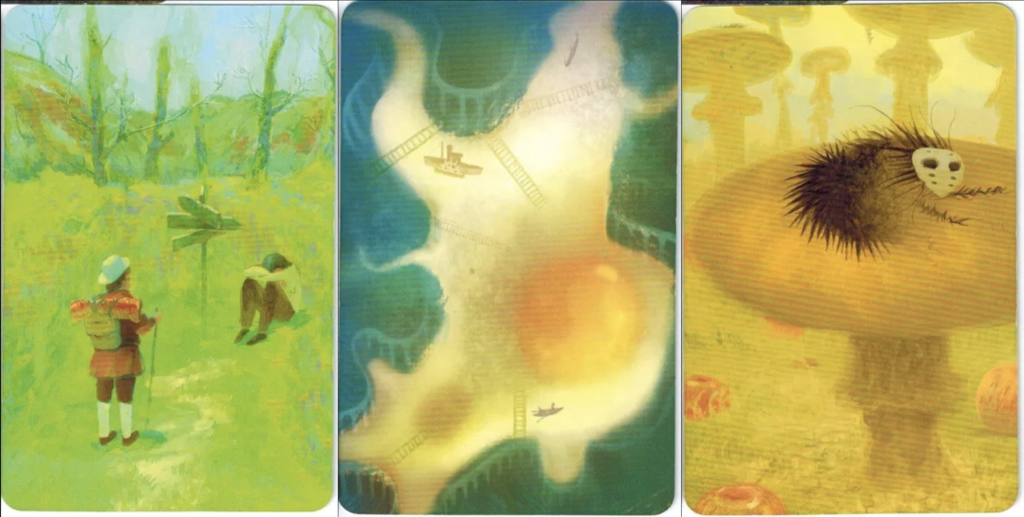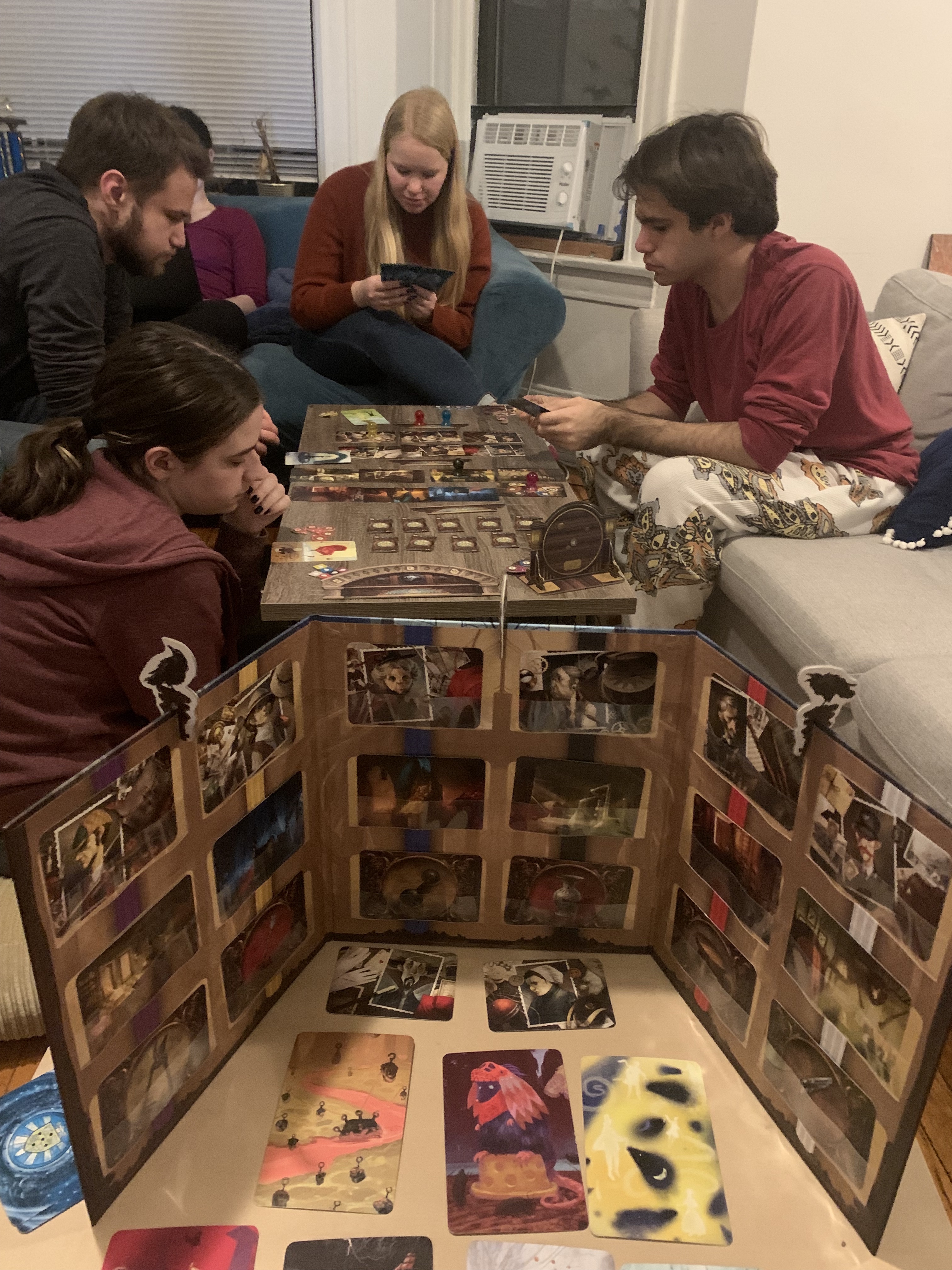“One knock for yes, do the macarena for no.” I did the macarena as I wanted to bang my head against the table because my friends had not seen my totally obvious clue from the vision card I had given them.
Mysterium is a cooperative board game in which up to six players (known as psychics) try to communicate with a ghost (who is also a player) to figure out how they died. They do this by making an educated guess from a pool of suspects, locations, and weapons informed by vision cards received from the ghost. The vision cards, to me, are beautifully efficient at creating an atmosphere of surrealness and possibility. Cards often contain recognizable objects but are often cluttered or augmented to appear in a dreamlike state.

‘Vibes’ was a term that was thrown around a lot at the table and I think that is what Mysterium excels at –creating vibes. The vision cards are the most obvious example of this. All the cards stick to a similar color palette and art style allowing for any set of cards to be paired together. This fluidity allows for the game to be cohesive as cards don’t stand out directly, it is up to the players to decide what stands out about the card they are given. Does the puddle indicate the location of the bathroom or are you reading too far into it?
With only being given cards to communicate as the ghost, there is a sense of masochistic joy that comes from watching the psychics attempt to dissect a vision card in a way you were completely unprepared for. On the other hand, trying to find the links between the visions and the pools of choices is very satisfying to get it right. One of my friends successfully got all three correct in a row and had a blast boasting her skill and betting on the other psychics. Meanwhile, the person who had to get it right in the last round let out a cathartic scream when hearing a single knock indicating they were correct.
By giving the players the agency to make their own meaning, it makes them feel accomplished in knowing what they did was because of themselves. This agency is granted because the environment, or vibes, of the game were laid out clearly for the players. The vision cards are not the only example of how Mysterium creates an environment for its players; the table layout and pieces all do this wonderfully.
All the pieces have some form of relation to spirits. The Clairvoyancy tokens are planchettes, the player pawns are crystal balls, the player and turn markers are pieces of a house. All of these provide a tactile experience that creates the environment that allows players to jump right in and create their own meaning.
